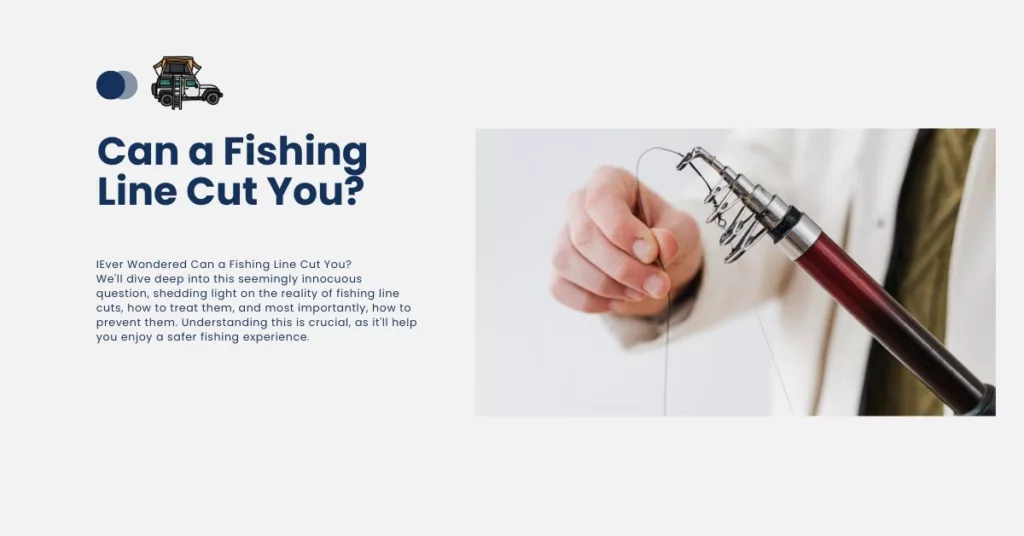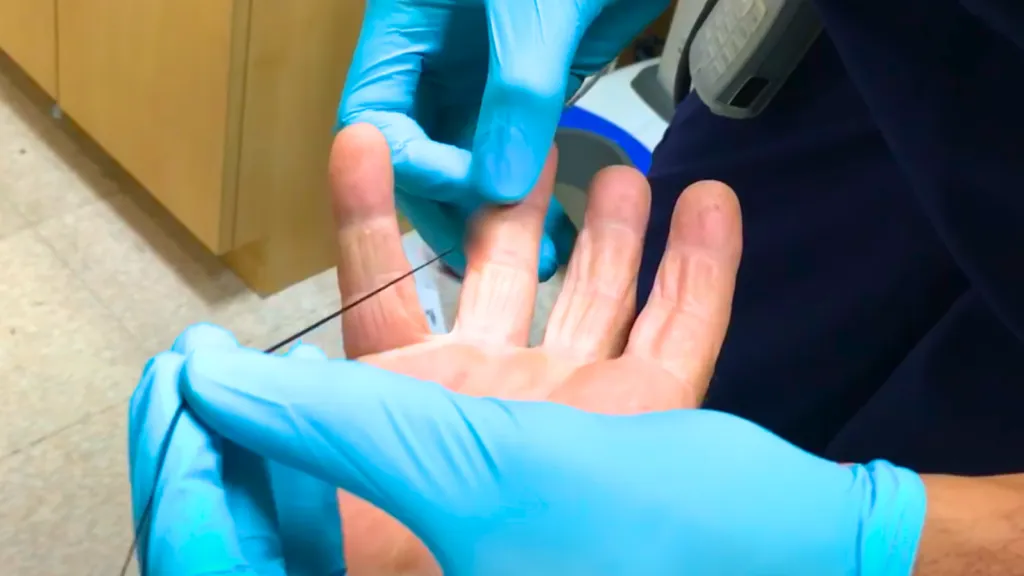
Today, we delve into a question that might have crossed the minds of both novice anglers and seasoned fishers alike: can a fishing line cut you?
Buckle up, fellow anglers, as we explore the nitty-gritty of this topic and share insights to keep your fishing escapades injury-free.
Can a Fishing Line Cut You?

In short, the answer is yes—a fishing line can indeed cut you. It depends on various factors such as the type of line, its thickness, tension, and speed. Now, let’s explore which types of lines are more expected to cut your finger.
Types of Lines and Their Risks
- Monofilament: This common choice has moderate strength but can still pose a cutting threat, especially with thin diameters.
- Fluorocarbon: Known for its invisibility underwater, fluorocarbon is less likely to cut, but its stiffness can cause injury if mishandled.
- Braided: These lines, with exceptional strength, are also the most likely to cut. Thin, tightly woven braided lines can easily cause harm, especially when under tension.
- Wire: Reserved for specific situations, wire lines are sharp and fast, making them a prime candidate for causing cuts.
Safety First
Now, let’s move on to the essential part “keeping your fingers intact”. Here are some golden rules to follow:
- Gloves or Towel: Always use gloves or a towel when handling the line, especially during casting, retrieving, or cutting.
- No Fingers on the Line: Avoid putting your fingers directly on the line, particularly when it’s under tension or in motion.
- Use Proper Tools: Opt for line cutters or scissors instead of your teeth or a knife for cutting the line.
- Regular Checkup: Inspect your line for signs of wear, such as fraying or nicks, and replace it if needed.
- Mind Your Surroundings: Avoid casting near sharp objects that can damage or snag the line.
In case you find yourself on the wrong end of a fishing line, here’s how to handle it:
- Apply Pressure: Immediately apply pressure and elevate the wound to control bleeding.
- Clean and Protect: Clean the wound with soap and water, apply an antiseptic, and cover it with a bandage.
- Seek Medical Attention: If the wound is deep, infected, or persistent, seek medical help promptly.
Fishing Line Cuts: Myths and Facts
Despite what you’ve heard, not all myths about fishing line cuts hold water, so let’s debunk some of them and get our facts straight.
Firstly, one widespread myth is that fishing lines can’t cut you. Well, this isn’t true. A fishing line, particularly braided ones, can indeed cut you, especially if you’re not careful during casting or reeling and the line slips across your hand.
Another common mistake is believing that only the fish hook can cause injuries. Yes, a fish hook can hurt you, but the fishing line can be just as dangerous if misused.
It’s not the fishing rod or the fish hook alone, but how you handle the equipment that matters.
Lastly, some folks believe that fishing line cuts aren’t serious. This is dangerously incorrect. Any cut can lead to infection if not treated properly.
Now, for the facts: Fishing line cuts are preventable. Wearing gloves and handling your fishing rod with care can significantly reduce the risk. And if a cut does occur, cleaning and treating it promptly prevents complications.
My Own Experience
Let me share a personal story. Picture a serene lake, a powerful braided line, and an ambitious fish. The outcome? A close encounter with a fishing line cut that taught me valuable lessons on safety and caution.
Learning from such experiences is vital for all of us. As anglers, we share not only the joy of fishing but also the responsibility of keeping ourselves and fellow enthusiasts safe.
Final Thoughts
Fishing is a pursuit that balances on the edge of excitement and caution. Yes, a fishing line can cut you, but armed with knowledge and adherence to safety measures, you can minimize the risks. Always prioritize safety, and let every fishing expedition be a memorable tale of triumph rather than a painful mishap.
Frequently Asked Questions
What Type of Fishing Line Is Most Likely to Cause a Cut?
Braided fishing lines are more likely to cause a cut. They’re incredibly thin yet strong, so if you’re not careful, they can easily slice into your skin, especially under tension. Always handle with care.
Are Certain Types of Fish More Likely to Cause a Fishing Line Cut?
Yes, certain fish are more likely to cause a fishing line cut. Predatory fish with sharp teeth, like pike or barracuda, can see through your line. You’ll need to use a tougher line with these species.
Can a Fishing Line Cut Lead to Any Long-Term Injuries or Complications?
Yes, it can. If you’re not careful, a fishing line cut could lead to infections and even long-term nerve damage. It’s crucial you clean and treat any cuts immediately to prevent such complications.
How Often Do Professional Fishermen Experience Fishing Line Cuts?
Yes, you’d be surprised at how often pros get cut. It’s not a daily occurrence, but it’s not rare either. They’re adept at handling lines, but even the most skilled can sometimes slip up.
Can Fishing Line Cuts Occur Even With the Use of Gloves or Other Protective Gear?
Yes, even when you’re using gloves or other protective gear, fishing line cuts can still occur. It’s all about the line’s tension and sharpness, combined with the force you’re applying. Always be cautious and aware.
